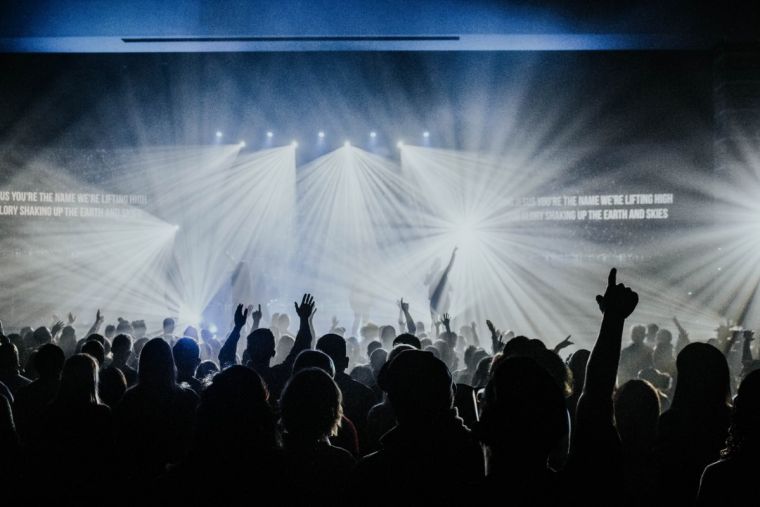Choosing online church doesn't mean we don't have faith

Where I live, we have a great word: 'Mardy.' The Oxford English Dictionary says it means "in a petulant bad mood; sulky or grumpy". Those of us that use the word know the gist is correct, but it's much more than that, including a mild toddler-like tantrum.
There does seem to be a lot of 'mardy-ness' going around at the moment, and for many different reasons. Some of this is coming out as pious tantrums because returning to church as it used to be is not going to happen any time soon.
One of these mardy tantrums can be seen in the question "How do I get people back into church (the building) when they don't want to?" Apparently, if they don't come, it shows they don't take meeting together seriously, their faith isn't fervent enough, and wanting to remain online shows they are just lazy 'watchers' who can't be bothered.
I have found the myriad of articles and social media posts in this vein upsetting; not just for me, but for many of my friends.
Some have been accused of not having enough faith that God will protect them from Covid-19 if they come to church, and they are getting a barrage of comments that imply their faith is worthless because they continue meeting online, with the added implication that online church isn't real and is instead a 'slothful' way of doing church.
I'm talking about those who have been shielding, and the very real and necessary anxiety they feel due to shielding being stopped. The risk is still out there – the news tells us it's still around and active. But shielders are now expected to return to the form of normal that everyone else is experiencing, while knowing they are still at great risk.
This will be both disabled and non-disabled people who have been active in your churches over the years, people with a strong faith, people you would never know have health issues. Your leaders, children's workers, musicians and many more. A few will say "whatever" and just return, but others will carefully and prayerfully weigh the risks and choose only what is safe.
This is not about faith, it isn't about not being resilient; it's about common sense and finding the level that works safely for each individual.
Right at the beginning of this pandemic everyone was told that it's ok, coronavirus will only kill those who are elderly and have underlying health conditions. At the time, I remember tweeting about this by saying, "Being a medically vulnerable person, I am glad to be of service!", and I find myself wanting to tweet that again as the elderly and vulnerable people rhetoric raises its head once more.
As an aside, this does not mean vulnerable as in 'not capable', which is how many are interpreting it. It means we are more likely to catch and become seriously ill, or die from the virus. There is a vast difference between vulnerable and medically vulnerable.
Those who were shielding are still at risk. I have been told by my GP not to travel on a plane, so have had to cancel my holiday. If being on a plane is a risk, does that mean being in a church building is a risk? Apparently, yes.
So for now I will, like many others, opt to continue shielding where I think there is risk, and only go where I can mitigate that risk. If your church has found a loophole to sing or gather more people, I won't be coming to your church as it's too risky. Nothing to do with faith, it's just being practical.
So, Church, listen up. If you are one of those leaders having a mardy tantrum about members not wanting to come to the building, or not being able to sing or anything else in the guidelines, think again.
Weighing the risk and not attending or asking for advice to be followed for safety reasons is not being awkward. Feeling anxious is normal; it's a God given safety valve that in today's world is a valuable thing.
Do not devalue faith or resilience, and do not recklessly judge motives if people don't come to services in the building. If you are medically vulnerable but returning to the buildings, remember that this is your decision and not to be used as judgement. Check in with those still unsure of what to do for their own mental wellbeing while still keeping safe. Support them in their decisions and be understanding.
A phrase I used recently struck a chord with many, so I will re-use it here: "Not singing congregationally in church could be your way of washing someone's feet." Respecting the anxiety of those who are medically vulnerable could be another way of serving your fellow Christian.
And at the risk of keeping repeating myself, this is why you need to keep your online church going. Not through gritted teeth, but as a sacrifice of unsung praise and out of respect for your fellow humans.
Kay Morgan-Gurr is Chair of Children Matter and Co-Founder of the Additional Needs Alliance, part of the Evangelical Alliance Council. For more, www.kaymorgangurr.com and on Twitter @kaymorgan_gurr
Views and opinions published in Christian Today are those of the authors and do not necessarily reflect the views of the website.











